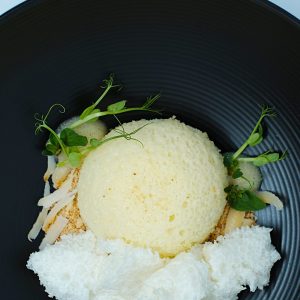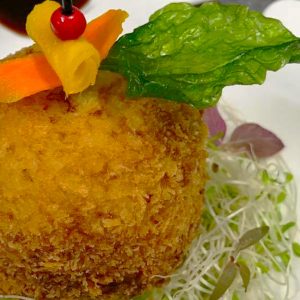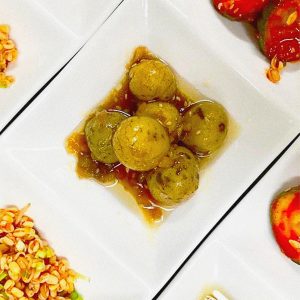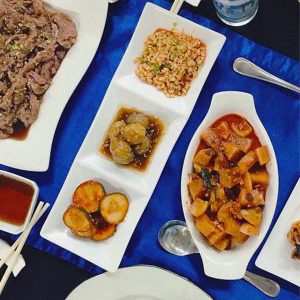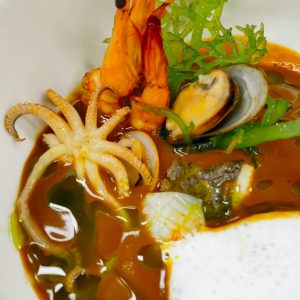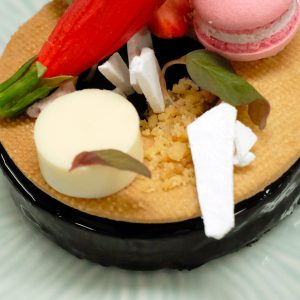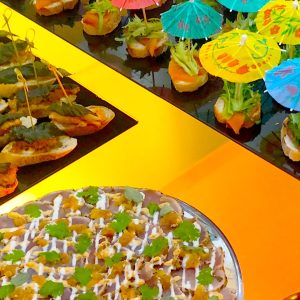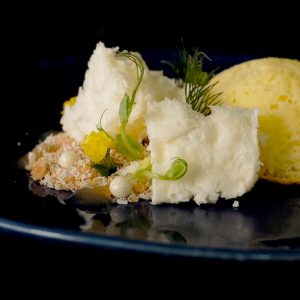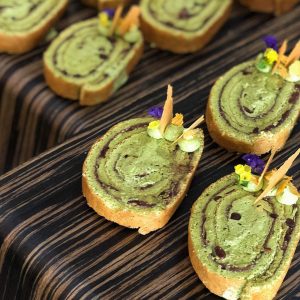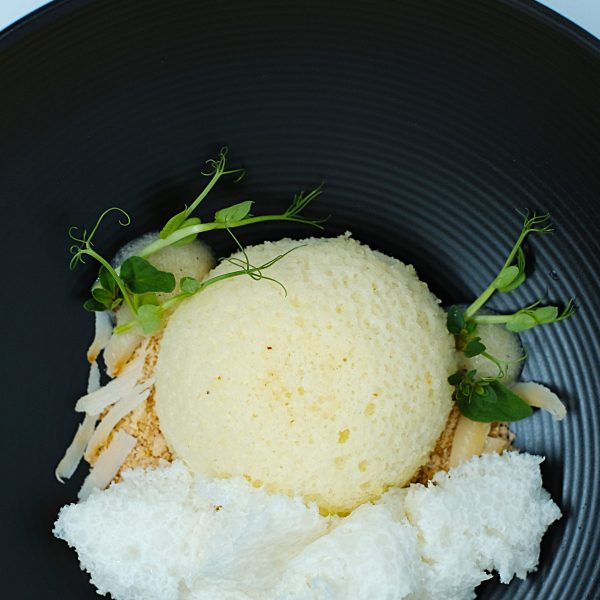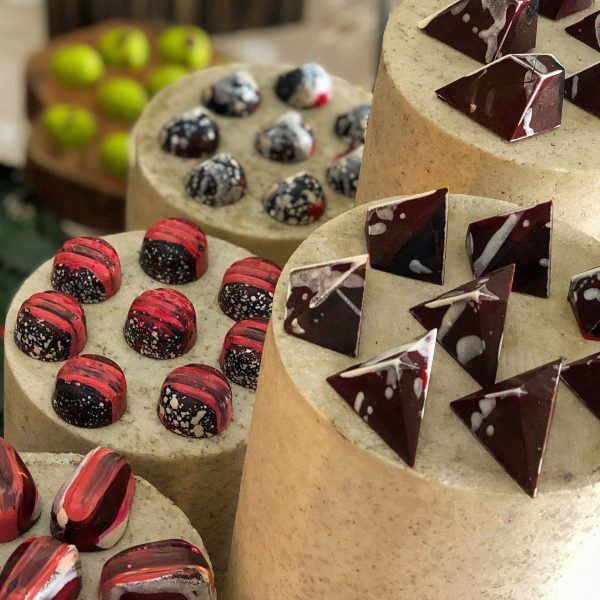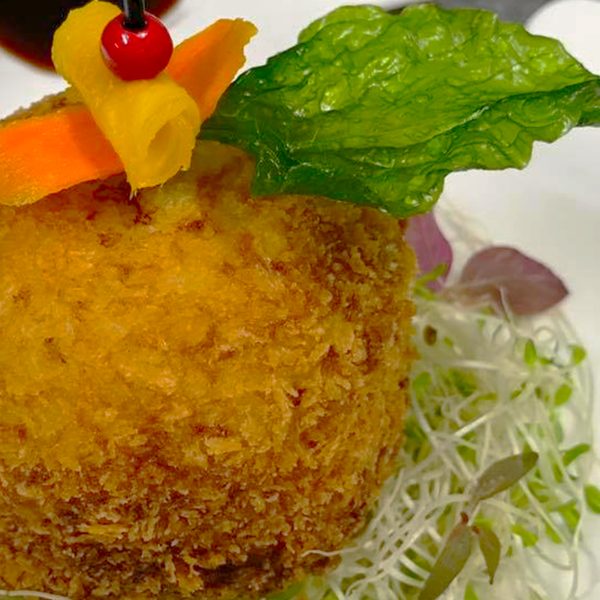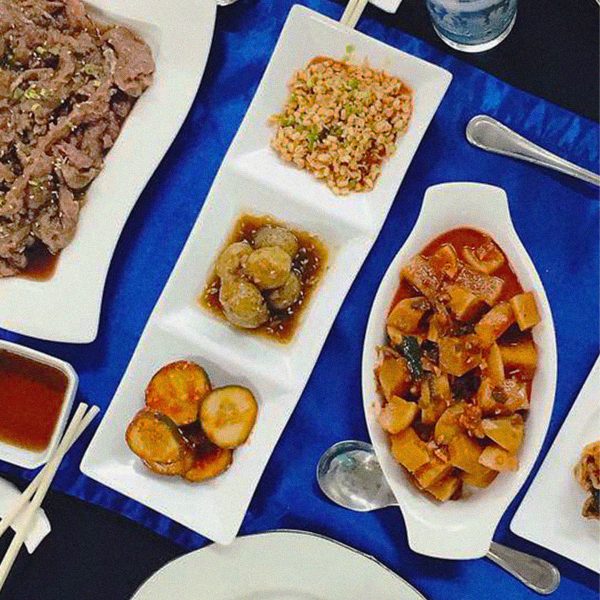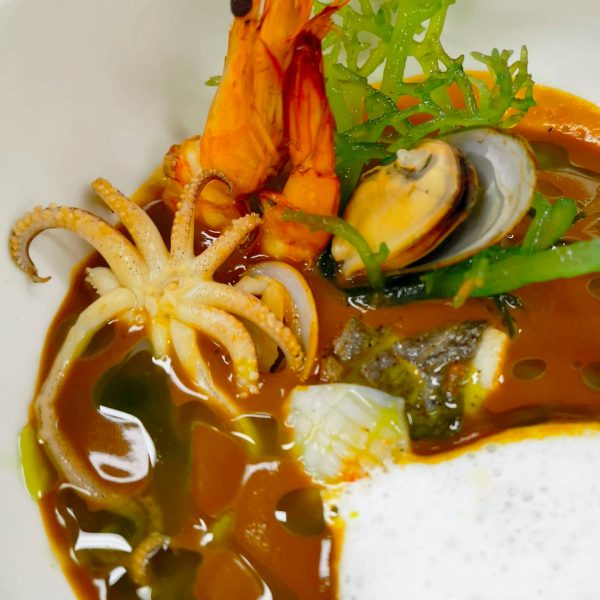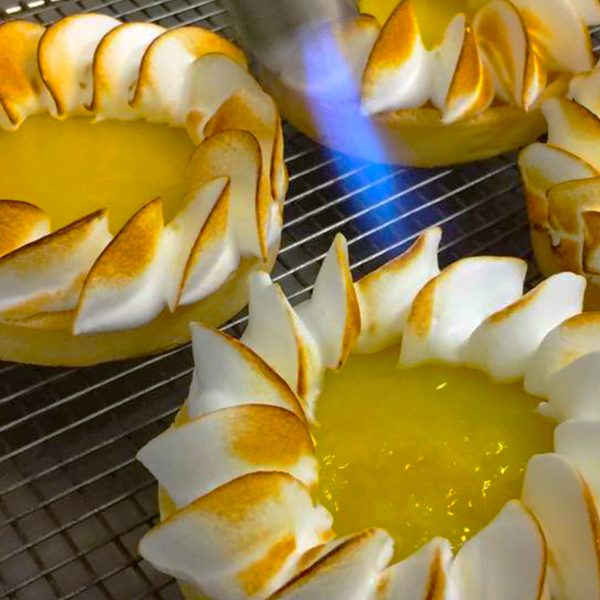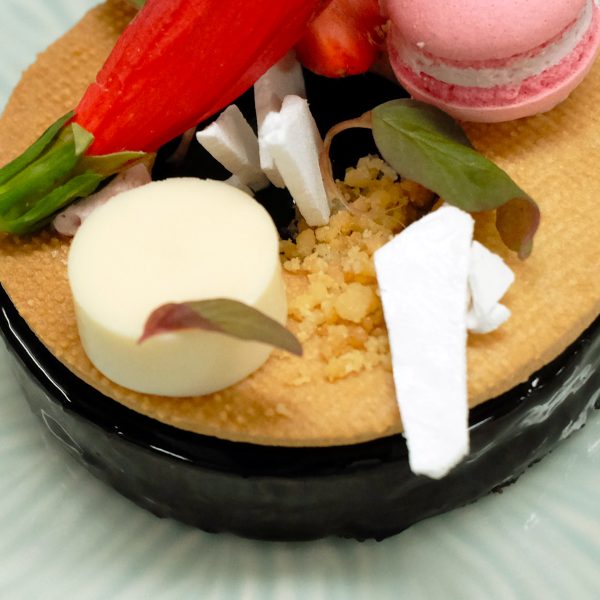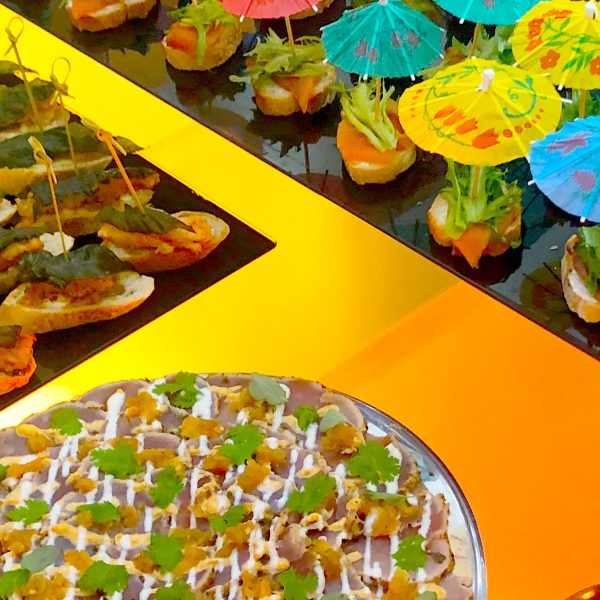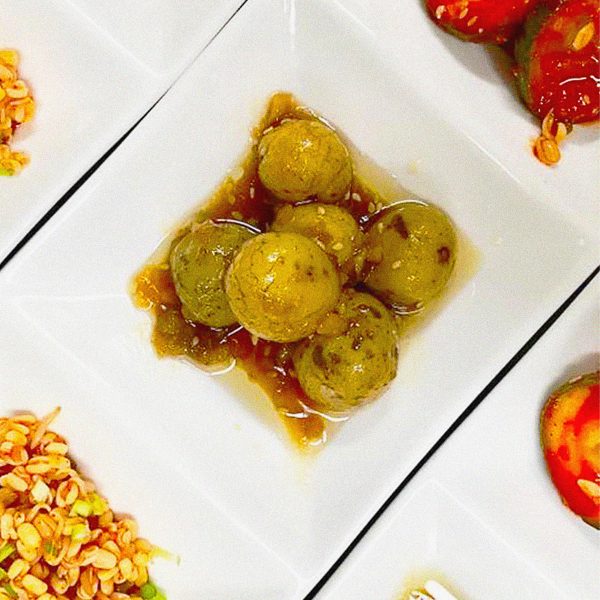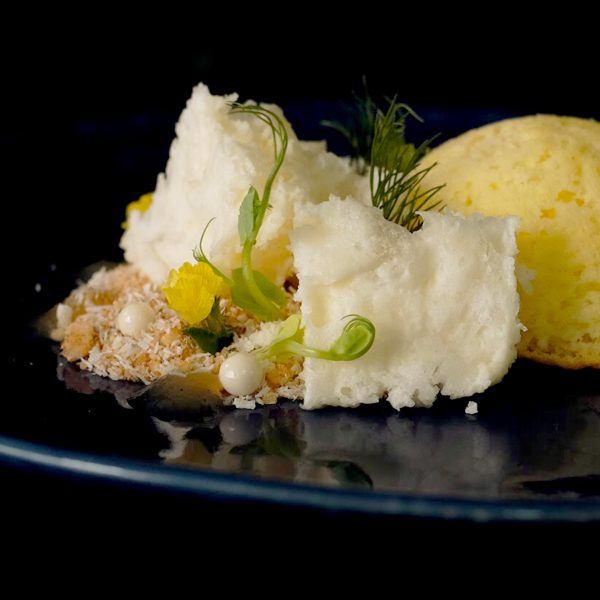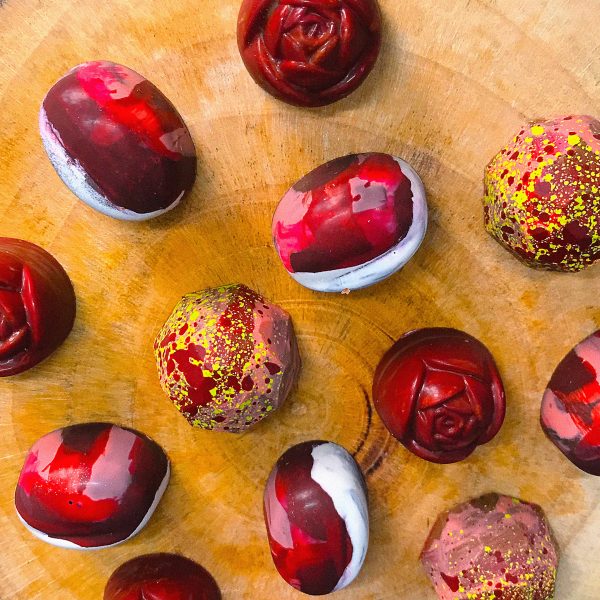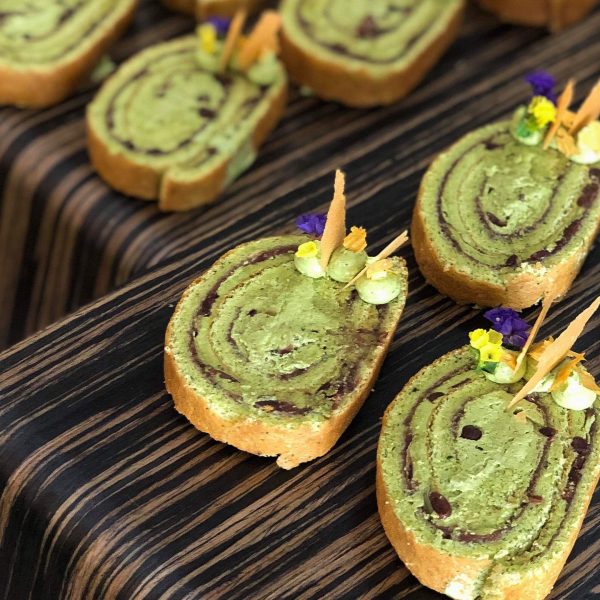Undergraduate – Culinary Arts
savor
like no other
Bachelor of Science in Culinary Arts Management
Formerly known as: Bachelor of Science in Hotel, Restaurant and Institution Management–Culinary Arts Track
savor
like no other
Bachelor of Science in Culinary Arts Management
Formerly known as: Bachelor of Science in Hotel, Restaurant and Institution Management–Culinary Arts Track
Ideal for learners who aspire to be knowledgeable from the cuisine to the entrepreneurial aspects, the Bachelor of Science in Culinary Arts Management program not only equips you with the fundamentals and techniques of food preparation but also sharpens your management and critical thinking skills to become industry leaders and changemakers.
“Exceptional cuisine,
worth a special journey!”
Students are expected to epitomize excellence even on the business side of food and beverage production. In consultation with Benilde’s School of Management and Information Technology (SMIT), several business courses were developed specifically for BS-CAM. Different management systems were designed to keep students abreast with the use of technology as an advantageous competitive tool.
Graduates have various opportunities in the Food and Beverage (F&B) and Culinary Industries as they are trained for key roles such as F&B Managers, Restaurant Managers and Entrepreneurs who may establish their own businesses and brands as Restaurateurs and Caterers.
Those who are interested in the service side can become Personal Chefs and Food Consultants. Students who have artistic points of view can delve into allied fields such as Food Photography and Social Media Management with focus on the food industry.
Other careers open to graduates are Chef de Partie, Executive Chef, Pastry Chef, Sous Chef, and Research and Development Chef. Specialized careers like skilled Butchers who are masters in Delicatessen or Chocolatiers who advocate for Filipino Bean-to-Bar Production are options students may want to pursue.
We provide students with entrepreneurial proficiencies as well as a comprehensive understanding of the diverse management systems to be able to efficiently direct service providers and institutional units and address organizational challenges by proposing strategies, maximizing opportunities, and implementing rational decisions.
Guided by the principles, students are honed to create new business models based on demands and supported by data and trends to be able to fill in market gaps.
You are encouraged to research, plan, and conceptualize creative ideas to innovate for product development and process improvement with the use of evidence-based practices and the latest technological advancement.
Be the best thing
since sliced bread
BS-CAM arms you with nutrition-based and specialized culinary skills as well as familiarization and mastery of science-based techniques to prepare high-quality dishes as well as expertly identify, fabricate, and utilize various culinary products to effectively run operations and productions and gain global competitive advantage.
You are likewise motivated to advocate and globalize regional Filipino food heritage through the use of traditional cooking methods and ingredients.
With an awareness of various international cuisines with a focus on historical and cultural identities, you are also envisioned to exhibit adeptness in communication skills, protocols, and traditions to deal with a diverse environment.
Bachelor of Science in Culinary Arts Management (BS-CAM)
Program Length: 146 academic units and 10 non-academic units (10 trimesters)
Upon completion of the B.S. CULINARY ARTS MANAGEMENT, the graduates are expected to:
- Lasallian/Benildean/Civic
- demonstrate the Lasallian and Benildean Core Values that emphasizes God centeredness
- manifest a high level of self-worth and actualization that participates in nation-building and value-forming advocacies
- to be aware of their civic obligations and social contracts
- Business/Management
- manage effectively and efficiently food service providers and institutional food service units
- address organizational challenges and issues by proposing strategies, finding opportunities, and making rational decisions through applicable management principles.
- create new business models based on market demands supported by data and industry trends
- develop entrepreneurial skills through the application of management principles to fill in market gaps
- Skills
- exemplify nutrition-based basic culinary skills to prepare nutritious food products
- integrate specialized culinary skills by exhibiting mastery and familiarization of science based culinary techniques to prepare high quality food products
- expertly identify, fabricate, and utilize various culinary products to have a global competitive advantage necessary to effectively run culinary operations and productions
- advocate regional Filipino cuisine to promote and globalize Filipino food heritage through the use of traditional cooking methods and ingredients
- exhibit proficiency in communication skills, cultural protocols, and international traditions to deal with a culturally diverse environment
- prepare food for various cultures by understanding various global cuisines focusing on historical and cultural identities
- Research
- plan, research and conceptualize creative ideas to innovate for product development and process improvement using evidence-based practices and the latest technological advancement
BUSINESS/MANAGEMENT COURSES
- Culinary Purchasing and the Art of Food Cost Control
- Information Systems for Culinary Arts
- Culinary Tourism
- Obligations and Contracts
- Food Business and Finance Management
- Marketing Strategies on the Digital Ages
CORE COURSES
- Chemistry and Food Science
- Nutrition and Wellness (Laboratory)
- Butchery and Fish Mongery (Laboratory)
- Principles of Menu Planning and Food Production (Lecture)
- Principles of Menu Planning and Food Production (Laboratory)
- Personality Development
- Foreign Language
MAJOR COURSES
- Professional Cookery (Laboratory)
- Garde Manger and Charcuterie (Lecture)
- Garde Manger and Charcuterie (Laboratory)
- Poultry and Meat Cookery (Lecture)
- Poultry and Meat Cookery (Laboratory)
- Seafood Cookery (Lecture)
- Seafood Cookery (Laboratory)
- Basic Baking and Pastry Production (Lecture)
- Basic Baking and Pastry Production (Laboratory)
- Culinary Research (Laboratory)
- Culinary Development (Laboratory)
- Capstone Project and Financial Analysis
Catering and Events Management (Laboratory) - Restaurant and Kitchen Management
Competency Examination
PROFESSIONAL ELECTIVES/SPECIALIZATION
- Advanced Baking and Pastry Production (Lecture)
- Advanced Baking and Pastry Production (Laboratory)
- Filipino Cuisine, Culture and Traditions (Lecture)
- Filipino Cuisine (Laboratory)
- Asian Cuisine, Culture and Traditions (Lecture)
- Asian Cuisine (Laboratory)
- Europe and Latin American Cuisine and Culture (Lecture)
- Europe and Latin American Cuisine (Laboratory)
PRACTICUM
- Practicum (Internship)
- Practicum (Externship)
Start Your Lifelong Benildean Journey
Interested applicants for the Bachelor of Science in Culinary Arts Management program can find information about admission schedules, requirements and procedures on the Admissions page.
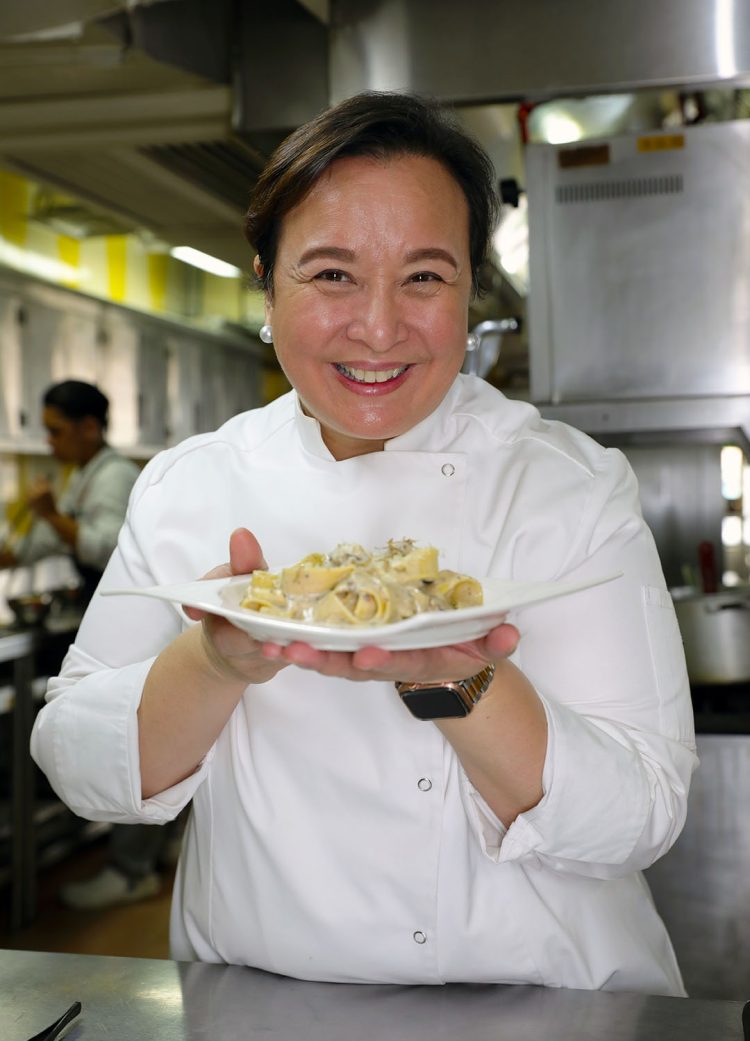
“We’re becoming our own program and removing ourselves from hospitality. It’s culinary skills with a management background,” Program Chair Chef Marga Isabel Marty explains. “Everything we’ve learned in the past 25 years, we’ve put into this. We have removed certain courses before to give way to hospitality subjects, which are now back because we see the importance. There’s Butchery, Advanced Baking, Culinary Development, Culinary Research, etc. We also have Restaurant and Kitchen Management; embedded in it is the design of restaurants and commissaries. When our graduates become executive chefs, they are asked to design the layout of their kitchens and dining areas so that they will be efficient and economically stable, allowing the restaurant owner or chef to actually make money.”
Flavorful Frontiers: Crafting a Tasteful Revolution
The Culinary Theater, on the 7th floor of De La Salle-College of Saint Benilde’s Angelo King International Center (AKIC) Campus, is abuzz with excitement. There’s food to be shared and chef’s jackets hanging, ready to be worn. Faculty and students alike from the School of Hotel, Restaurant and Institution Management (SHRIM) are getting ready to celebrate Clifford Jeff Unabia and Chef Mentor Kannan Sreedevi’s silver finish in the recently concluded historic 10th IIHM International Young Chef Olympiad (2024 YCO) in Kolkata, India with representatives from over 60 countries around the world.
Cooking Up Silver: Culinary Passion and Precision Like No Other
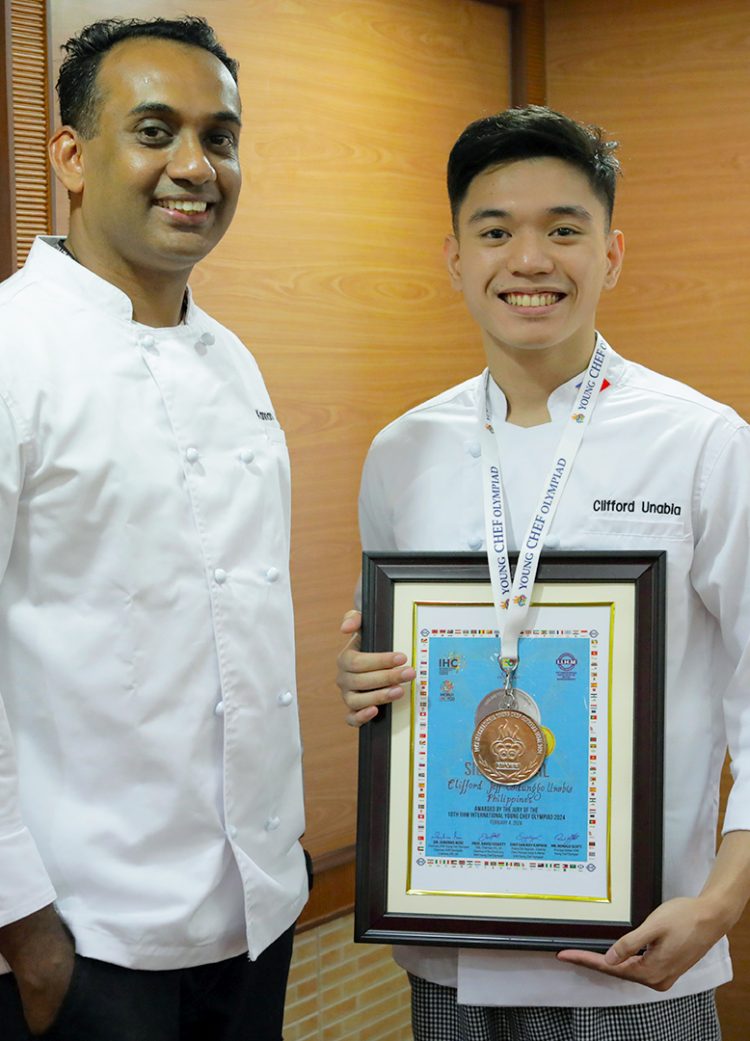

Industry practice
is our bread and butter
The School of Hotel, Restaurant and Institution Management (SHRIM) primes future hoteliers, restaurateurs, and hospitality managers for the rigors and precision of the hospitality industry.
SHRIM is the first and only hotel school in the Philippines to be awarded a Level IV accreditation by the Philippine Accrediting Association of Schools, Colleges and Universities (PAASCU), and also one of the few schools that have been conferred as a Center for Excellence in Hotel and Restaurant Management by the Commission on Higher Education (CHED). Furthermore, the School is a Certified Guest Service Property granted by the American Hotel & Lodging Educational Institute or AHLEI.
Culinary Arts
Management
You are viewing this page.
Glazed with experiential learning
SHRIM students can appreciate their program better through experiential learning that’s why SHRIM encourages participation in many co-curricular activities. They are immersed through industry events that expose them to current and upcoming trends and let them meet professionals who can share trade secrets.
Extra-curricular and co-curricular activities
These are all OPTIONAL since related expenses (i.e. program fees, airfare, accommodation, living expenses, etc.) are not part of the regular tuition and fees.
Educational Tours and Internship subject to CHED regulations. Tour destinations are also subject to change.
All students may spend 6-12 months in a luxury hotel or resort in the US through our partner, the International Trainee Network (ITN). They may also spend 4-5 months in Jumeirah owned hotels/resorts in Dubai in collaboration with the Emirates Academy of Hospitality Management (EAHM).
Culinary students may participate in 5-month program in Italy either through the Italian Culinary Institute for Foreigners (ICIF) or the Italian Food Style Education (IFSE).
IHM students may spend a term or two in a partner Vatel Campus through the Marco Polo Program. They can also take their first practicum in Nimes, Frances through Vatel Nimes.
SHRIM encourages participation in local and/or international educational tours as part of experiential learning.
Some classes that have tours are the following:
- PTOUR-1 Bohol
- PTOUR-2 Korea
- ASIANCU Thailand
- FILCUI2 Quezon
- WINEAPP Paris-Bordeaux
- BARMGM2 Paris-Bordeaux
- ECOTOUR Palawan
- LEISMGT Sorsogon
- WORLD02 Paris

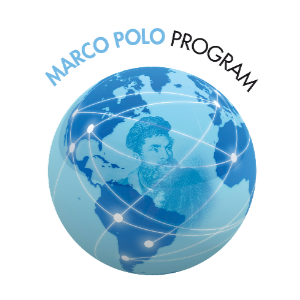

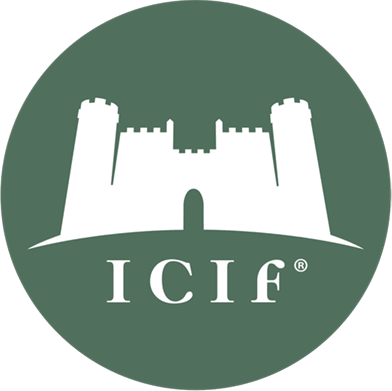
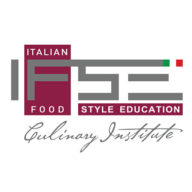


A message from our Dean
I extend the warmest of welcomes as we begin another promising academic year. It is a great pleasure to see familiar faces return and to welcome our new Frosh, especially the first cohorts of our innovative BS in Culinary Arts Management and BS in Hospitality and Luxury Management programs. We are also delighted to have international exchange students from La Salle Beauvais and Vatel Réunion join our vibrant community. We’re thrilled to host you here, to learn from you, and to share in this academic journey with you.
This upcoming year at SHRIM is no doubt exciting. We have the soft opening of the Vatel Restaurant at the Atrium Campus, which will not only enhance our students’ practical and professional experience but also bring your talent to the rest of our Benildean community. All our new developments have, indeed, been designed to equip you with the skills to be real-world ready—from the newly renovated laboratory facilities on campus, to our enhanced internship programs. Additionally, we have expanded the destinations of our educational tours, offering invaluable opportunities to explore diverse cultures and foster valuable connections for your future careers.
As we finally reflect on the past year, I would like to express my sincere gratitude to everyone who contributed their talent, dedication, and effort for the milestones we have achieved—and in ways, this has become a tradition that we strive to uphold every academic year. In particular, the success of the recent and inaugural Br. Andrew Gonzalez Academia-Industry Conference was a testament to the collective efforts of our faculty, associates, students, and industry partners. Thank you for your continued support and participation—may this upcoming year bring forth many opportunities filled with growth, learning, and accomplishment.
As we look forward to what lies ahead, I can’t help but be filled with gratitude for the incredible people who make up our SHRIM community. Thank you for coming to be a part of it, and a warm welcome to all!
C’est la “V”!
Benilde offers the first international double-degree program in the Philippines under the new transnational guidelines of the Commission on Higher Education (CHED).
This is made possible through the partnership with Vatel Hotel & Tourism Business School, a recognized and highly reputable hotel-school in France.
Furthermore, Vatel Restaurant Manila, the premier restaurant of Hotel Benilde, serves French cuisine for dining and caters to special banquets and events.
A 4-star hotel with 5-star experience
Inside the AKIC Campus is Hotel Benilde Maison de La Salle, a 4-star hotel with restaurants and banquet halls where students, mentored by hotel staff, render duty to practice hotel and hospitality service on real hotel guests.
Every nook and corner tells a story
SHRIM adheres to the philosophy that superior education culminates in practice. Our campus, the Angelo King International Center (AKIC), houses industry-standard kitchen laboratories where students apply what they learned through hands-on experience.
SHRIM invests heavily in industry-standard laboratory facilities and training facilities internally called Hatcheries. These include a 50-room 4-star hotel, a travel & tours office, a fine dining French restaurant, a gourmet cafe, an off-premise catering unit, and a cafeteria and quick service food facility. These hatcheries do not only teach the necessary skills but also the important components of operations, marketing and entrepreneurship.

